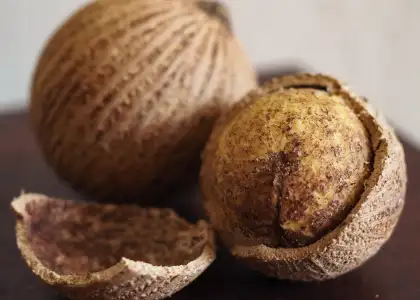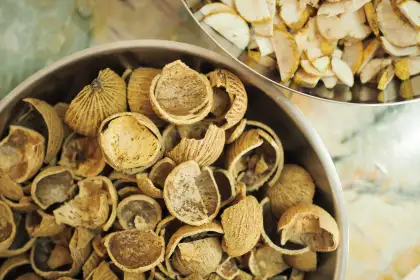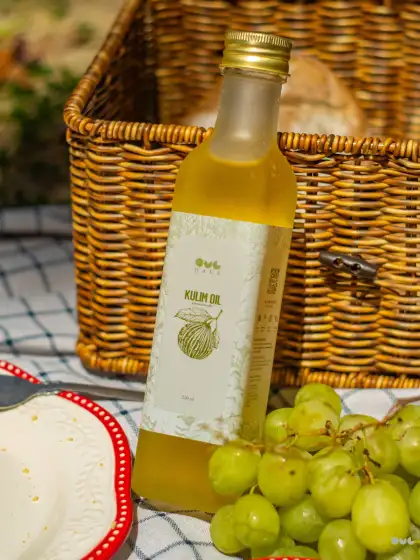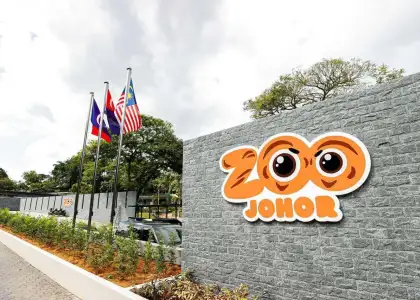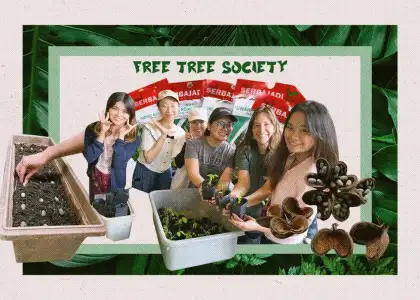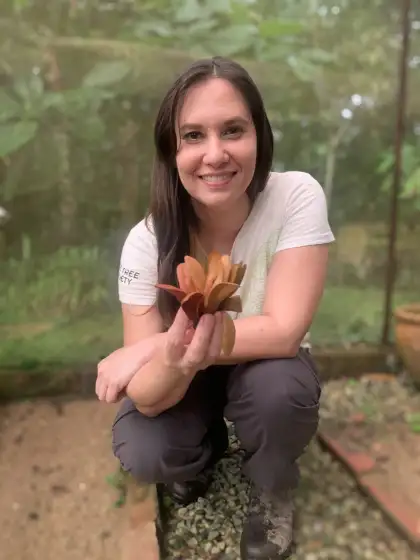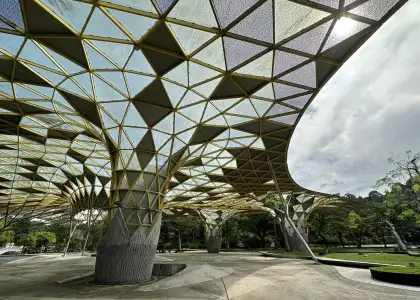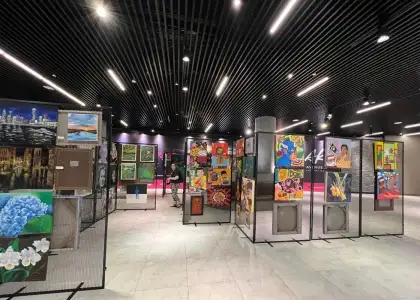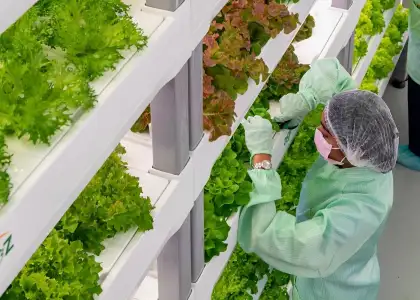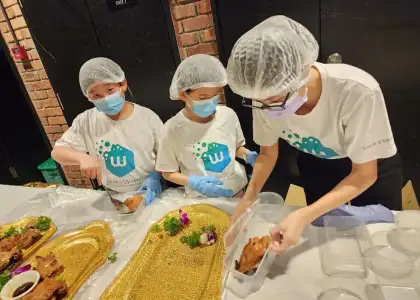These Female Co-Founders Sparked an International Recycling Movement
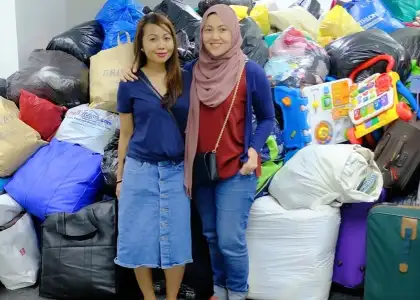
Nik Suzila “Suzy” Binti Nik Hassan and Sarahah “Sarah” Binti Hj Kedah are two friends who dreamt of changing the world. Now, having spent over ten years as entrepreneurs for the sustainable social enterprise, Kloth Circularity, Suzy and Sarah have realized that it is possible.
What started out as an organization aimed at contributing to circular economy efforts has boomed into an international movement that involves people in Malaysia, Singapore, Australia, and the United Arab Emirates (UAE). They own an umbrella of brands that include Kloth Wear, where loose plastic bottles have been recycled into rPET textiles and made into clothing and merchandise, Kloth Cares, which sees the recycling of both plastic and textiles, and Kloth Woman Up, a movement that empowers marginalized women to produce upcycled merchandise for sale.
Kloth Circularity has even collaborated with production engineer, Sangeeta Mohan Das, to produce an innovative plastic reverse vending machine. Called the Crush-It, this incredible contraption facilitates effective plastic and aluminum collection, gathers data, and ensures that waste is maintained at its highest quality.
Today, The Beat Asia speaks to both Suzy and Sarah on the realization of both their dreams and their community.
What were your backgrounds before you established Kloth Circularity in 2013? How did you meet and come up with the idea?
Suzy: We were both studying at the same university pursuing Bachelor of Accounting degrees and we've been good friends since we were 19 years old.
Since our late 20s, both of us have been questioning ourselves regarding our employment life. While we were happy, we were not content. We felt the urge to explore something more exciting such as entrepreneurship. It only happened when both of us attended the World Marketing Summit 2013 in Putrajaya, Malaysia. We were inspired by the Sustainable Development Goals (SDG) agenda, especially sustainable textiles and recycling clothing, and wanted to be part of the ecosystem.
Sarah: Inspired by the speakers and by the event, we established a social enterprise dedicated to balancing people, planet, and profit through the principles of the circular economy. We discovered that plastic waste can be recycled into stunning fabrics and clothing, creating a sustainable solution to a global problem.
Was it difficult breaking into the Malaysian market at this time? If so, what were the hurdles and how did you overcome it?
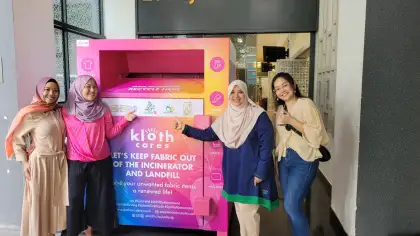
Sarah: Fabric waste and recycling in Malaysia have rarely been highlighted and are almost unheard of, with textile waste accounting for only 5% of landfill content compared to food, plastic, and paper waste. Acknowledging the risks, we created the Kloth Cares Fabric Recycling Movement with the tagline 'Join the Movement and Keep Fabric Out of Incinerators and Landfills’ setting a target to collect 188,000 kg of unwanted textiles within 18 months. Surprisingly, we achieved this goal within 11 months, and we realized it was just the beginning.
We are truly amazed by the public’s response, and we can confidently say that the Kloth Cares Fabric Recycling Movement has successfully changed the mindset from merely donating fabrics to actively recycling them.
Kloth Circularity has a lot of different arms under its umbrella – how do you manage it all?
Sarah: At Kloth, the success of managing its various arms under one umbrella is supported by our strong teamwork and collaborative partnerships. We believe in leveraging each other's strengths and complementing each other's skills to drive the organization forward. Suzy and I prioritize clear communication, regular strategic meetings, and a shared vision to ensure all team members are aligned with Kloth’s goals.
Suzy: Two years ago, we formed Kloth Singapore and currently are expanding our business and sustainable partners’ network. It is exciting but can be challenging and nerve-wracking too. I learned that I need to get enough sleep because when we sleep well, we manage ourselves and our responsibilities better.
How were you able to grow so quickly in the 2020s considering there was a pandemic?
Suzy: Prior to the pandemic, we only had 3 brands, Kloth Textile, Kloth Wear, and Kloth Cares. During the pandemic, we saw an opportunity to further our environmental and social impact through the launch of Kloth Woman Up. This initiative aims to help women from marginalized communities generate additional income by empowering them to sew upcycled products. Our first upcycled product, the Kloth Face Mask, saw the production and sale of over 15,000 reusable face masks. In 2022, we registered Kloth Singapore and Australia too, with the hope we can broaden our advocacy and social enterprise business into different markets.
All founders need to be bold to try something new. I believe that if you want different results, you must do things differently or try new things. Discuss with your partner and team. It always seems to be the case that the founders want expansion, but they don't acknowledge the staffing issues.
Are there different attitudes to plastic/recycling/sustainability in MY, SG, AUS, and UAE? If so, what are they?
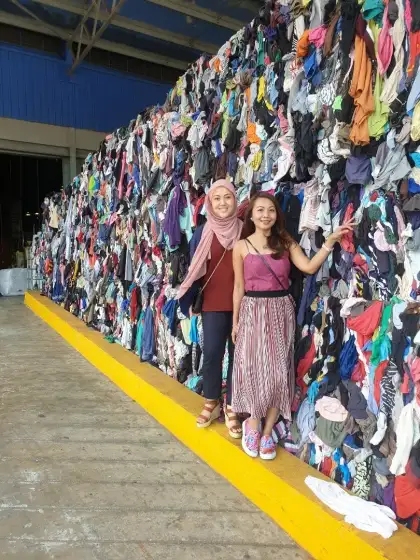
Suzy: By and large, there is no difference between MY, SG, and UAE citizens. People know they have to recycle and mostly want to. However, the challenge is fabric bin or pick service accessibility or availability.
Moreover, most people presume that unwanted clothing will be donated to marginalized and struggling communities, without taking into consideration factors such as quality, style, cultural sensitivity, size, etc. It’s remarkable that people want to “do good” through fabric donations, However, a lot of them recycle without having in-depth knowledge of how the recycling industry works.
Sarah: Convenience is a key factor for the community when it comes to recycling. This means having easy access to fabric recycling bins and the ability to mix clothing items so long as they are clean. Recycling textiles and clothing is perceived as easier than recycling food and plastic waste because these items often come from clothes that are no longer wearable or from overfilled closets, making them readily available for recycling.
Community members are more likely to engage in recycling efforts if they know that their items will go through textile recycling streams such as reuse, repurpose, and upcycle, with recycling being the last resort.
Kloth is involved in a lot of record-setting achievements. What inspires you guys to push the envelope? What records are you looking forward to setting in the coming future?
Suzy: Thank you! Firstly, I enjoy and believe what we do at Kloth, both for the environment and social sustainability. Looking back, I tried many things, studied accounting, worked in an audit firm, and then a stockbroking firm and joined the media industry. At 33, I found Kloth and found my purpose too. I know what I like and don’t like. I like the circular economy and entrepreneurship and it moves me.
For Kloth Cares, we pledge to collect 4,000,000 kg of unwanted textiles and clothing on a yearly basis. Last year, we only managed to collect 3.1 million kg. We want to fulfill our pledge of 4 million kg this year and perhaps in 2025, it will be 5 million kg and more.
Sarah: Firstly, we aim to expand our textile recycling efforts, setting a record of 4,000,000 kg of fabric waste diverted from landfills and repurposed into new products. We also aspire to set records in community engagement, particularly with local marginalized women, empowering them through our collaborative partnerships and initiatives.
Get the latest curated content with The Beat Asia's newsletters. Sign up now for a weekly dose of the best stories, events, and deals delivered straight to your inbox. Don't miss out! Click here to subscribe.








